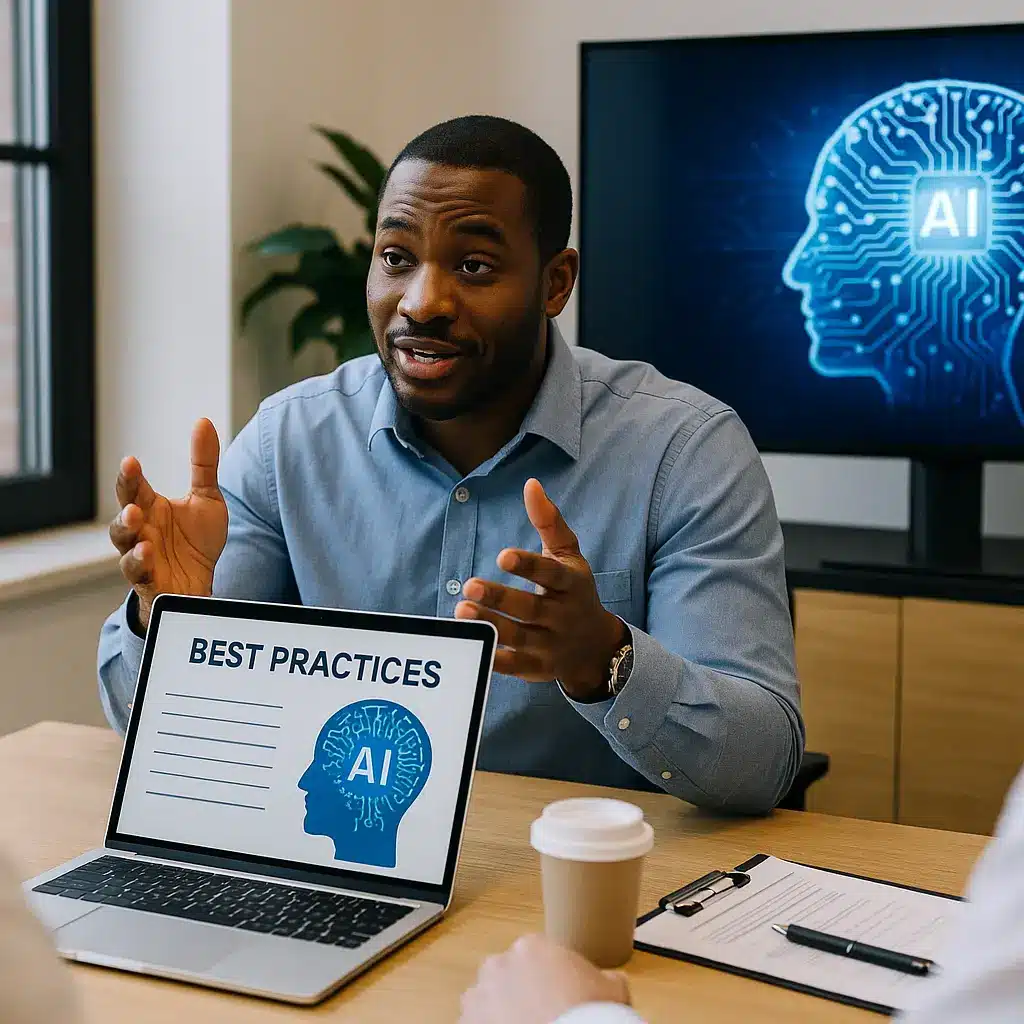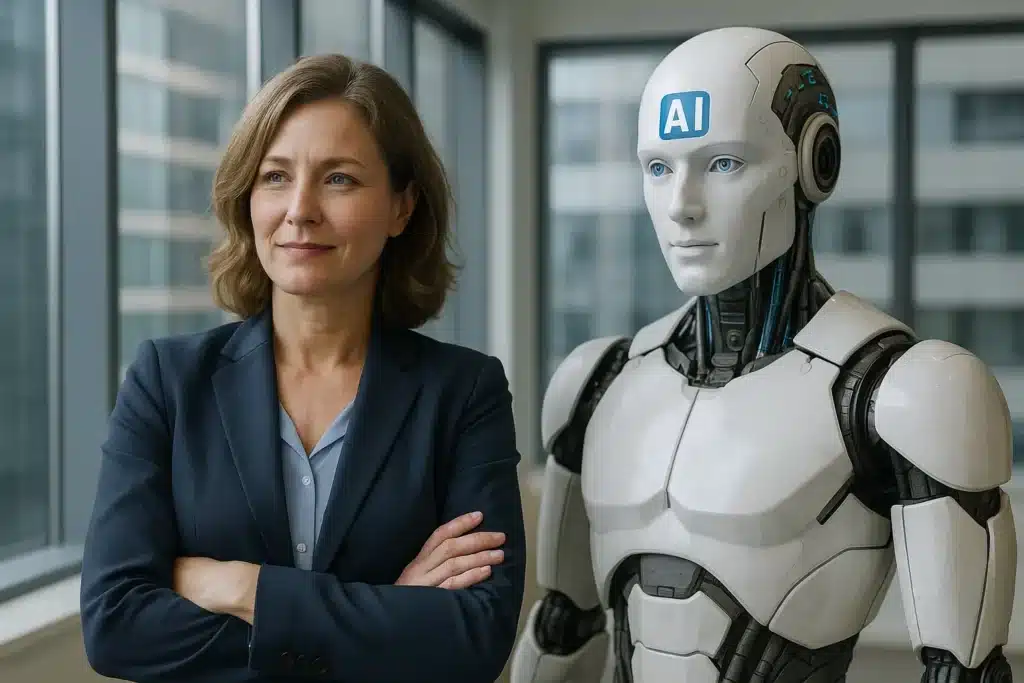Project Management and AI: Navigating Change with Confidence
Author: Hajime Estanislao, PMP®; Editor: Geram Lompon; Reviewed by: Alvin Villanueva, PMP®, PMI-ACP®
Projects rarely progress in a straight line. Deadlines shift, risks emerge, and stakeholder priorities change faster than traditional project plans can adapt. Methods rooted in static schedules and rigid structures, including conventional
Artificial intelligence (AI) has become a necessity in
When paired with the principle-based guidance of PMBOK 7th Edition and the context of CPMAI v7, AI becomes a core part of how projects are delivered. Organizations that embrace AI gain resilience and increase their chances of achieving successful project outcomes.
What Do We Mean by AI-Powered Project Management ?
AI-powered
Generative AI drafts documentation, summarizes feedback, and automates updates. Machine learning models forecast resources, predict schedule delays, and highlight potential risks. Automated systems handle reminders, scheduling, and reporting, enabling project managers to focus on
Far from replacing project managers, AI functions as a digital colleague, streamlining routine tasks, complexity, and amplifying human judgment.
Core Concepts: PMBOK 7, CPMAI v7, and Generative AI
The PMBOK Guide 7th Edition emphasizes adaptability, value delivery, and systems thinking rather than rigid processes. It mirrors AI in
CPMAI v7 (Cognitive
Generative AI connects the two. It accelerates documentation, enhances communication, and delivers timely insights. Together, PMBOK’s value-driven lens and CPMAI’s structured framework guide traditional and

The Role of AI Tools in Project Management
Modern AI tools extend
- Trend analysis extracts insights from historical project data.
- Risk assessment helps predict and mitigate issues earlier.
- Resource management: Match skills to tasks, forecast needs, and optimize allocations.
- Progress tracking displays milestones and performance.
- Collaboration: Tools automate meeting notes, transcription, and document sharing.
- Stakeholder feedback: Spot recurring themes for informed decisions.
These systems act as always-on copilots, surfacing insights while allowing managers to focus on strategy and stakeholder alignment.
Predictive Analytics: Anticipating Outcomes
Predictive analytics transforms
This data-driven approach facilitates more accurate budgeting, resource planning, and scheduling. Project managers become more confident in anticipating challenges, aligning commitments with available resources, and ultimately enhancing key performance indicators and project success rates.
Enhanced Communication: AI as a Collaboration Catalyst
AI-powered communication tools enhance collaboration among teams and stakeholders. With natural language processing, chatbots and virtual assistants can provide instant updates, answer questions, and personalize communications for stakeholders.
For distributed teams, AI helps bridge geographic divides by automating translations, generating meeting summaries, and ensuring everyone has access to the same information. By streamlining interactions, AI enables project managers to design effective communication strategies, manage project tasks, and foster better alignment within the team.
Why Project Management + AI Makes Sense Now
Traditional methods fall short under shifting conditions. AI offers foresight through predictive analytics, machine learning, and NLP, enabling project managers to:
- Anticipate risks and mitigate early.
- Match commitments to realistic capacity.
- Adjust timelines dynamically.
- Improve transparency with stakeholders.
- Increase success rates by basing decisions on data patterns.
It makes
Step-by-Step: Smarter Project Management with AI
- Align with a Living Roadmap – Use AI scenario modeling to forecast constraints, test trade-offs, and adaptable plans.
- Build an Intelligent Portfolio – Apply AI scoring to prioritize initiatives and allocate resources based on skills and availability.
- Run AI-Informed Planning Sessions – Blend historical data with predictive models to guide commitments and anticipate capacity issues.
- Keep Progress Visible – Dashboards flag milestones, exceptions, and KPIs, providing clarity without micromanagement.
- Reflect with Insight – AI-powered retrospectives analyze patterns, identify recurring blockers, and turn lessons into actionable improvements.
Embedding AI into each stage enables data-driven decision-making and continuous learning, reducing guesswork and strengthening outcomes.

Best Practices for Integrating AI
Integrating AI into
- Select tools aligned with organizational needs.
- Maintain high-quality, secure project data.
- Train teams to use AI confidently.
- Establish clear objectives for AI adoption.
- Monitor and refine processes regularly.
AI should support human decision-making, not replace it. Successful integration blends technology with collaboration to optimize resource allocation, ensuring AI contributes to long-term project success.
Considerations: Human Judgment Still Matters
AI improves efficiency; however, bias, data privacy, and over-reliance on AI should be considered and monitored.
Project managers must act as stewards of AI, interpreting outputs responsibly while closely monitoring project progress and aligning insights with ethical standards.
The most effective outcomes emerge when machine accuracy is utilized with human empathy, creativity, and judgment.
The Future of Project Management
The role of AI will continue to expand. Project managers can expect advanced predictive analytics, better AI
As AI evolves, project managers must remain agile, strengthen complementary skills such as strategic thinking and emotional intelligence, and continuously assess new technologies. Those who adapt will lead projects with greater confidence and consistency.
Wrapping Up: A Practical Way Forward
Project management and AI are now inseparable. By uniting PMBOK 7 principles, CPMAI v7’s lifecycle, and the capabilities of generative AI, project managers can improve
- Use project data more effectively.
- Manage resources with accuracy.
- Detect and mitigate risks earlier.
- Deliver more consistent, successful outcomes.
The future of
References
Cognilytica. (2024). Cognitive
Harvard Business Review. (2023, February 21). How AI will transform
Project Management Institute. (2021). A guide to the
Project Management Institute. (2025). PMI Infinity. Project Management Institute. https://infinity.pmi.org/

